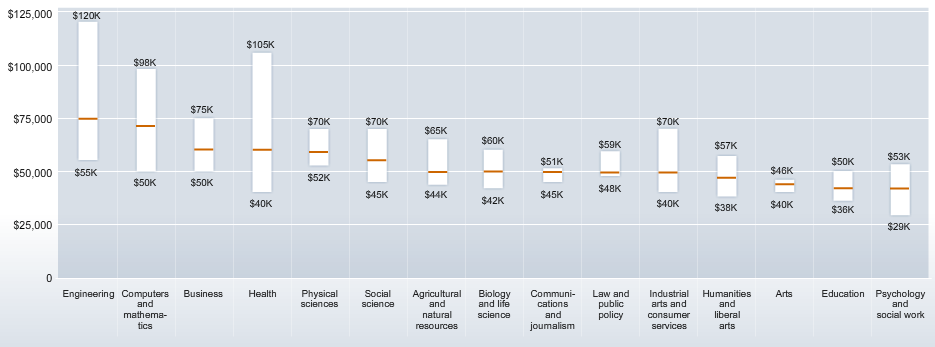With the rising costs in higher education, prospective students are increasingly weighing the likely return on investment before enrolling. Beckie Supiano’s recent article in the Chronicle of Higher Education, suggests that rather than asking whether or not an undergraduate degree is a worthwhile investment, individual students should instead look at specific degree plans. She cites Georgetown University’s Center on Education and the Workforce’s extensive report “showing what Americans earn and the occupations and industries they work in by college major.” The report shows median income ranges, for those whose highest earned degree is a bachelor’s, ranged from a low of $29,000 (counseling-psychology) to a high of $120,000 (petroleum engineering). The chart below summarizes the findings. An interactive version, which allows users to roll over the graphic to see the range for its many specialties within each major, is available here.
So What?
While higher education is undergoing numerous changes, it remains a preferred means of preparing for one’s chosen field of endeavor. One should always take time to “count the cost” before embarking on a new course of study.
- Did you weigh the likely annual earnings of your profession with the cost to attain the required level of education before beginning your studies? If so, did it influence your choice of a degree program or a career path? If not, would you be more inclined to do so if you were to return to school now or were advising someone who was considering doing so?
- Increased education provides more than simply increased earnings. What other benefits do you attribute to attaining your undergraduate degree?
